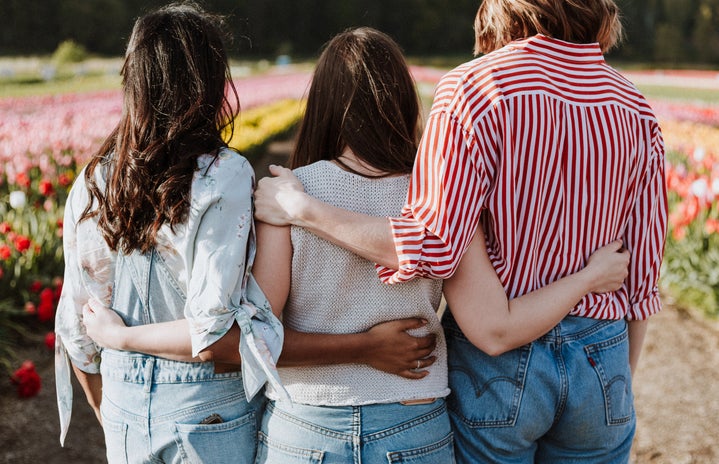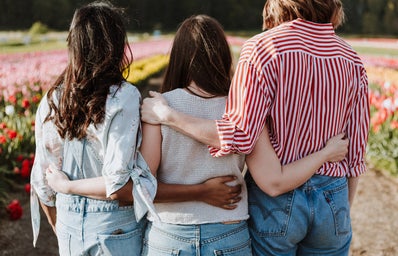Whether it be platonic or romantic, friendly or familial, everyone experiences and expresses affection differently. Personally, I dealt with eighteen months of a relationship with someone who showed affection most in a way I could hardly stomach, so I wanted to get my thoughts down about learning how it mattered to me.
The five types
Experts have defined five types of “love languages,” and only one of them is verbal, named “words of affirmation.” This type is characterized by encouragement, praise, or attentive listening. Considering the fact saying “I love you” seems to be how we most clearly show affection in society, this is often considered the most prevalent or obvious love language.
Another, and my personal favorite, is physical touch. I’ve found that when I become close enough with someone that I reach to tap their arm without thought, that is when I consider them a friend. I usually stop myself before I do so the first time and explain the situation, then ask them if they have any concerns about me showing them affection that way, as I understand it might make them uncomfortable. My family, too, is very physically affectionate. For example, I am so used to my mother kissing my forehead that I automatically duck my head when I go to hug her. My partner recently met some of my extended family, and may have received more hugs in half an hour than he usually gets in month.
The love language I least associate with is the giving and receiving of gifts, but I’ve come to realize there are two dialects of this language. My granny is the first: she gives gifts that are sweet and thoughtful, almost to an astonishing point. My mother likes to tell the story of her going to several stores one Christmas just to find the precise thing she wanted, because she knew it mattered to her. On the other hand – and this is the one I have much more trouble accepting – there was my first boyfriend, who bought anything I so much as looked at, even if I did not need it, or even actually wanted to own it. If I called something cool, he bought it for me, and it stressed me out, to the point I had to repeatedly tell him not to buy me things and felt something like dismay when he did it anyway.
Quality time, on the other hand, is much easier for me to handle. When I first looked into this topic a few years ago, it surprised me that this was listed as a love language at all. It becomes especially important to those who don’t have a lot of free time to offer, but I was confused by the reverse. It seemed so obvious, so classic, that I couldn’t imagine someone not showing affection this way. Seeing a movie, chatting in a coffee shop, just quietly sitting together and reading; it seemed like the entire idea of a date, or even just visiting family, and I was baffled by the idea that someone might not consider that part of their love language medley. I must admit, I am curious; what does a relationship, romantic or otherwise, look like without the enjoyment of time spent together?
Last, and the one that took me several hosted game nights to realize was one of mine, is acts of service. For me, this has mainly manifested as cooking and baking for those I care about. I brought a crepe cake to a student organization’s holiday potluck, I baked both a gluten-free and a vegan black forest gateau Swiss roll for my cousin and brother, and I plan on baking batches of sticky buns for my family this Christmas. Doing favors for people, hosting activities, and even giving them paintings I made all fall under this category for me.
Listening to Myself
As I hopefully made clear, you do not need to only have one love language. I tend to consider my preference for all of them on a spectrum, from my favorite to my least favorite, and yet I do still enjoy parts of what I consider my lowest preference. I’m not inherently against receiving gifts, hence the mention of the two dialects. It’s only a matter of figuring out what fits you best, what pieces you have more trouble with, and communicating that to those around you. It took me a couple tries, but I’m now about to celebrate my third anniversary with my partner, so I think I’ve mostly figured myself out.
Affection is not a purely romantic endeavor, and I tried to make that clear, as well. The way you show affection with family may be different from how you show it with friends, and all that may differ from affection with a partner. I struggled with trying to date someone entirely different from me, so I’ll not try and preach how to do that, but I hope my experience with this makes it a little more clear for everyone else.


